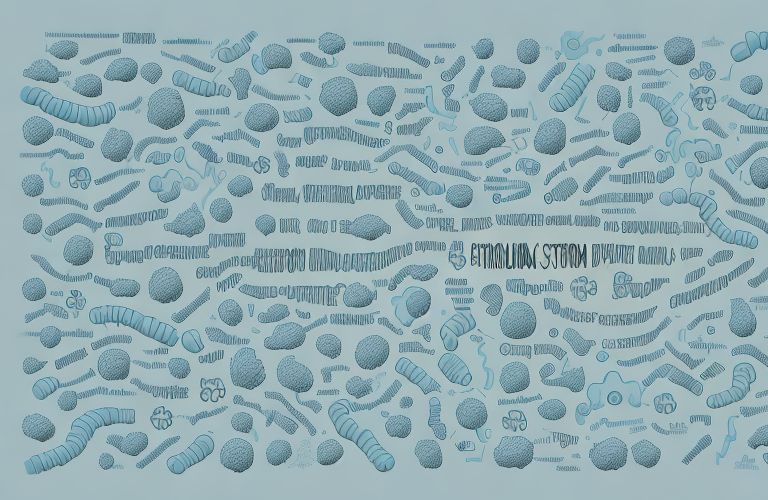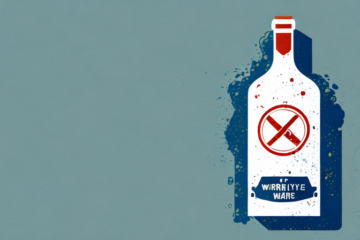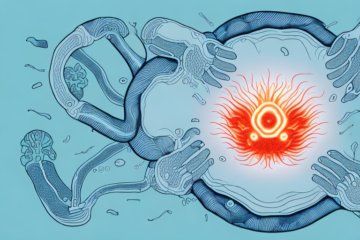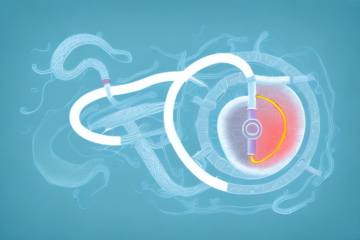Excessive gas is a commonly experienced condition that can be both embarrassing and uncomfortable. It is important to understand what excessive gas is, its causes, symptoms, and risk factors in order to manage the condition effectively. In this article, we will discuss all aspects of excessive gas, including diagnosis, treatment options, lifestyle and dietary changes, and prevention tips.
What is excessive gas?
Excessive gas, also known as flatulence, is the presence of excessive amounts of gas in the digestive system. It is a common condition that affects people of all ages, and is characterized by the release of gas through belching or passing wind.
There are several factors that can contribute to excessive gas, including certain foods and drinks, such as beans, carbonated beverages, and dairy products. Additionally, digestive disorders such as irritable bowel syndrome (IBS) and inflammatory bowel disease (IBD) can also cause excessive gas.
While excessive gas can be uncomfortable and embarrassing, it is usually not a serious medical condition. However, if you experience persistent or severe symptoms, such as abdominal pain or bloating, it is important to consult with a healthcare provider to rule out any underlying health issues.
Causes of excessive gas
There are many factors that can cause excessive gas, including dietary habits, medical conditions, and medications. Some common causes of excessive gas include:
- Consuming foods that are high in fiber, such as beans and lentils
- Consuming foods that are rich in carbohydrates, such as bread and pasta
- Incomplete digestion of food
- Swallowing air while eating or drinking
- Bacterial overgrowth in the intestines
- Food intolerance or allergy
- Medical conditions such as irritable bowel syndrome (IBS) or inflammatory bowel disease (IBD)
- Medications such as antibiotics or laxatives
In addition to the above mentioned causes, stress and anxiety can also contribute to excessive gas. When you are stressed or anxious, your body produces more cortisol, which can slow down digestion and cause gas to build up in your intestines. Additionally, when you are stressed, you may swallow more air than usual, which can also lead to excessive gas.
Symptoms of excessive gas
The symptoms of excessive gas can vary from person to person, but some common symptoms include:
- Excessive belching
- Passing wind more frequently and in larger volumes
- Feeling bloated or full
- Abdominal discomfort or pain
Other symptoms of excessive gas may include:
- Flatulence with a foul odor
- Abdominal distension or swelling
- Nausea or vomiting
- Loss of appetite
Excessive gas can also be a symptom of an underlying medical condition, such as irritable bowel syndrome, lactose intolerance, or celiac disease. If you experience persistent or severe symptoms, it is important to consult with a healthcare provider to determine the underlying cause and appropriate treatment.
Risk factors for excessive gas
There are several risk factors that can increase your likelihood of experiencing excessive gas. These include:
- Family history of digestive conditions
- Age – as you age, your digestive system may become less efficient
- Dietary habits – consuming foods that are high in fiber or carbohydrates can increase your risk of experiencing excessive gas
- Sedentary lifestyle – lack of physical activity can slow down your digestive system and increase your risk of experiencing excessive gas
- Medical conditions such as IBS or IBD
Another risk factor for excessive gas is stress. When you are stressed, your body produces more cortisol, which can slow down your digestive system and lead to gas and bloating. Additionally, certain medications, such as antibiotics or laxatives, can disrupt the balance of bacteria in your gut and lead to excessive gas.
It is important to note that while experiencing occasional gas is normal, if you are consistently experiencing excessive gas or other digestive symptoms, it may be a sign of an underlying condition. It is important to speak with your healthcare provider to determine the cause and appropriate treatment plan.
Impact of excessive gas on your health
While excessive gas can be embarrassing and uncomfortable, it does not typically have a serious impact on your health. However, in rare cases excessive gas can be a symptom of a more serious underlying condition such as intestinal obstruction or celiac disease.
It is important to note that excessive gas can also be a result of certain dietary habits. Consuming foods that are high in fiber, such as beans and vegetables, can cause an increase in gas production. Additionally, consuming carbonated beverages or chewing gum can also lead to excess gas.
While excessive gas may not be a serious health concern, it can still have a negative impact on your daily life. It can cause discomfort, bloating, and even pain. If you are experiencing excessive gas on a regular basis, it may be helpful to keep a food diary and track which foods seem to trigger your symptoms. You can then make adjustments to your diet to help alleviate your symptoms.
Diagnosis of excessive gas
If you are experiencing symptoms of excessive gas, your doctor may perform a physical exam and ask you questions about your medical history and dietary habits. They may also recommend diagnostic tests such as breath tests or stool analysis to rule out any underlying medical conditions.
In addition to the above mentioned diagnostic tests, your doctor may also suggest an endoscopy or colonoscopy to examine your digestive tract for any abnormalities or inflammation. These procedures involve inserting a thin, flexible tube with a camera into your digestive tract to capture images and potentially take tissue samples for further analysis.
It is important to note that while excessive gas can be uncomfortable and embarrassing, it is often a normal bodily function. However, if you are experiencing severe or persistent symptoms, it is important to seek medical attention to rule out any underlying conditions and receive appropriate treatment.
Treatment options for excessive gas
The treatment of excessive gas depends on the underlying cause of the condition. Some common treatment options include:
- Medications such as antacids or over-the-counter gas relief products
- Dietary changes such as avoiding certain types of foods that are known to cause gas, or consuming smaller, more frequent meals
- Medical management of underlying conditions such as IBS or IBD
In addition to the above mentioned treatment options, there are also some natural remedies that can help alleviate excessive gas. These include:
- Peppermint tea or oil, which can help relax the muscles in the digestive tract and reduce gas
- Ginger, which can help stimulate digestion and reduce inflammation in the gut
- Probiotics, which can help restore the balance of good bacteria in the gut and improve digestion
It is important to consult with a healthcare provider before trying any new treatment options, especially if you have an underlying medical condition or are taking medications.
Lifestyle changes that can help reduce excessive gas
There are several lifestyle changes that you can make to help reduce your risk of experiencing excessive gas. Some of these include:
- Incorporating regular exercise into your routine
- Drinking plenty of water to stay hydrated
- Avoiding chewing gum or drinking through straws, which can cause you to swallow more air
- Taking the time to chew your food thoroughly and eat slowly
In addition to the above lifestyle changes, it may also be helpful to avoid foods that are known to cause excessive gas, such as beans, broccoli, cabbage, and onions. Keeping a food diary can help you identify which foods may be triggering your symptoms. Additionally, reducing your intake of carbonated beverages and fatty foods may also help to alleviate gas and bloating.
Dietary changes to manage excessive gas
If your excessive gas is caused by your diet, there are several dietary changes that you can make to help manage the condition. These include:
- Avoiding foods that are known to cause gas, such as beans, lentils, and broccoli
- Limiting your intake of foods that are high in carbohydrates, such as bread and pasta
- Incorporating probiotics into your diet, such as yogurt or kefir
Additionally, it is important to drink plenty of water and stay hydrated to help prevent constipation, which can also contribute to excessive gas. Eating smaller, more frequent meals throughout the day can also help to reduce the amount of gas produced during digestion. Finally, keeping a food diary can be helpful in identifying specific foods that may be causing your excessive gas, allowing you to make more targeted dietary changes.
Medical management of excessive gas
If your excessive gas is caused by an underlying medical condition such as IBS or IBD, your doctor may recommend medications such as antibiotics or anti-inflammatory drugs to manage the condition.
In addition to medication, your doctor may also recommend dietary changes to help manage excessive gas. This may include avoiding certain foods that are known to cause gas, such as beans, broccoli, and cabbage. Your doctor may also recommend increasing your fiber intake to help regulate your digestive system.
If your excessive gas is caused by a more serious medical condition, such as colon cancer, your doctor may recommend surgery to remove the affected area. This is typically only done in severe cases where other treatments have not been effective.
Home remedies for reducing excessive gas
There are several home remedies that you can try to help reduce your symptoms of excessive gas. Some of these include:
- Drinking a cup of peppermint tea after meals to aid digestion
- Using a heating pad or hot water bottle on your stomach to help relieve abdominal discomfort
- Massaging your abdomen to help move gas through your system
In addition to these remedies, you can also try incorporating more probiotics into your diet. Probiotics are beneficial bacteria that can help improve digestion and reduce gas. You can find probiotics in foods such as yogurt, kefir, sauerkraut, and kimchi. Another option is to take a probiotic supplement, which can be found at most health food stores.
When to see a doctor about your excessive gas
If you are experiencing symptoms of excessive gas on a regular basis, or if your symptoms are accompanied by other symptoms such as weight loss or severe abdominal pain, it is important to see a doctor to rule out any underlying medical conditions.
Additionally, if you have recently made changes to your diet or have started taking new medications, it is also important to consult with a doctor as these factors can contribute to excessive gas. Your doctor can help determine the cause of your symptoms and provide appropriate treatment options.
Prevention tips for reducing the likelihood of experiencing excessive gas
There are several steps that you can take to help reduce your risk of experiencing excessive gas. These include:
- Avoiding foods that are known to cause gas
- Eating slowly and chewing your food thoroughly
- Drinking plenty of water to stay hydrated
- Incorporating regular exercise into your routine
In addition to the above tips, there are a few other things you can do to prevent excessive gas. One of these is to avoid carbonated drinks, as they can increase the amount of gas in your digestive system. Another tip is to avoid using straws when drinking, as this can cause you to swallow more air and lead to gas.
It’s also important to pay attention to your body and any symptoms you may be experiencing. If you notice that certain foods or activities tend to cause you to experience excessive gas, try to avoid them or limit your exposure to them. Additionally, if you are experiencing persistent or severe gas, it’s a good idea to talk to your doctor to rule out any underlying medical conditions.
Understanding the difference between normal and abnormal levels of flatulence
While the amount of flatulence that is considered “normal” varies from person to person, in general most people pass gas between 13 and 21 times per day. However, if you are experiencing excessive gas that is causing you discomfort or embarrassment, it is important to speak to a doctor to rule out any underlying medical conditions.
Some common causes of excessive flatulence include consuming certain foods, such as beans, broccoli, and dairy products, as well as swallowing air while eating or drinking. Stress and anxiety can also contribute to increased gas production. Making dietary changes, such as avoiding trigger foods and eating smaller, more frequent meals, can often help reduce excessive flatulence. Additionally, practicing relaxation techniques, such as deep breathing and meditation, may also be beneficial.
Common myths about flatulence debunked
There are several common myths surrounding flatulence, including the idea that holding in gas can be dangerous or that certain foods such as beans are “gas-producing”. In reality, holding in gas for an extended period of time can cause discomfort and pain, while the amount of gas produced by different foods varies from person to person. It is important to listen to your body and make dietary choices based on your individual needs and preferences.
In conclusion, excessive gas can be an uncomfortable and embarrassing condition, but there are many treatment and prevention strategies available to help manage the condition. By making dietary and lifestyle changes and seeking medical advice when necessary, you can reduce your risk of experiencing excessive gas and improve your overall digestive health.
It is also important to note that flatulence can sometimes be a symptom of an underlying medical condition, such as lactose intolerance or irritable bowel syndrome. If you experience persistent or severe flatulence, along with other symptoms such as abdominal pain or diarrhea, it is important to consult with a healthcare professional to rule out any underlying conditions and receive appropriate treatment.










